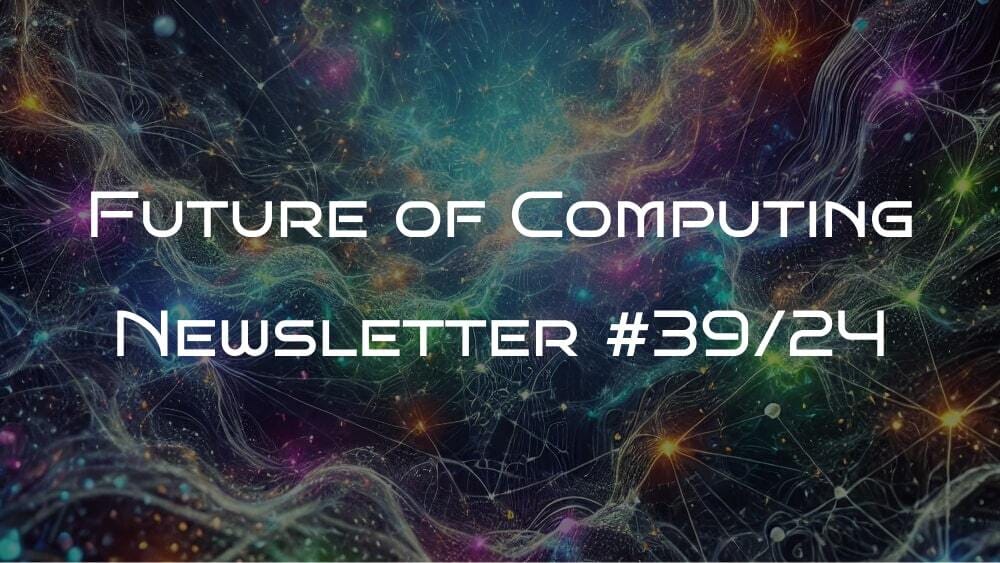Qunnect: Shaping The Future of Scalable Quantum Networking
What if you could transmit information in a way that’s not just secure but unhackable—protected by the fundamental laws of physics?
The quantum internet represents a transformative leap in data transmission, not only due to its unparalleled security—where any attempt to intercept communications is almost instantly detectable—but also because it enables direct quantum-to-quantum connections.
Qunnect was co-founded by Maël Flament and Mehdi Namazi with the mission of building scalable quantum networks. Their breakthrough quantum technologies enable not only the generation of entangled photons but also the preservation and restoration of these quantum states during transmission, overcoming one of the key challenges in long-distance quantum communication.
In 2022, with CEO Noel Goddard at the helm, Qunnect raised $8.5M in Series A funding from Airbus Ventures, Quantonation, SandboxAQ, New York Ventures, Hamamatsu Ventures, Impact Science Ventures, and Motus Ventures.
Learn more about the future of scalable quantum networking from our interview with the co-founder and Chief Technology Officer, Maël Flament:
Future of Computing News
🤖 Nobel Prize in Physics 2024: awarded jointly to John J. Hopfield and Geoffrey E. Hinton "for foundational discoveries and inventions that enable machine learning with artificial neural networks" (NobelPrize)
⚛️ QuEra Computing and Kipu Quantum Collaborate to Deliver Cutting-Edge Industrial Quantum Solutions via PlanQK Platform (QuEra)
⚛️ Europe’s largest sampling-based photonic quantum computer is operational (Interesting Engineering)
🧠 TDK develops "spin-memristor" for neuromorphic devices (newelectronics)
🌐 The Next Cloud Computing Revolution is Closer Than You Think: The move to a distributed cloud computing infrastructure will remove the constraints of today’s architecture … (Network Computing)
Funding News
⚛️ Q-CTRL Sets Global Quantum Technology Fundraising Record, Increasing Series B to USD $113M, Led by GP Bullhound (q-ctrl)
⚛️ TreQ Secures $5 Million Funding to Develop Open-Architecture Quantum Computers in the UK, Sky News Reports (The Quantum Insider)
🦾 Submer Secures $55.5M Round for Immersion Cooling (insideHPC)
🤖 Stockholm-based Lovable raises €6.8 million to make everyone a software engineer (EU Startups)
🤖 VESSL AI secures $12M for its MLOps platform that aims to cut GPU costs by up to 80%
Good Reads
“In this work, we revisit traditional recurrent neural networks (RNNs) from over a decade ago: LSTMs (1997) and GRUs (2014). While these models were slow due to requiring to backpropagate through time (BPTT), we show that by removing their hidden state dependencies from their input, forget, and update gates, LSTMs and GRUs no longer need to BPTT and can be efficiently trained in parallel.”
“The integration of quantum dot spin qubits and classical cryogenic microelectronics is important for scaling up silicon-based quantum computers. The authors show that their silicon technology tailored for low-power electronics and low-noise quantum dots enables the integration of classical multiplexers and quantum dot spin qubit devices on the same chip.”
“Thermodynamic computing has emerged as a paradigm for accelerating operations used in machine learning, such as matrix inversion, and is based on the mapping of Langevin equations to the dynamics of noisy physical systems. … In this work we propose electronic analog devices that sample from Bayesian posteriors by realizing Langevin dynamics physically.”
Also see our interview with Gavin Crooks: How Normal Computing Solves Linear Algebra Problems With Thermodynamics
Thank you for being one of the 784 subscribers to this week's edition 🤗
If you like this newsletter, please forward it to a friend or two who can subscribe here



